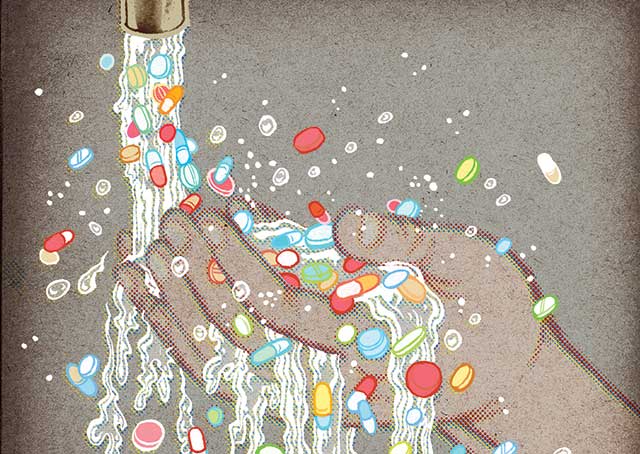 © YUKO SHIMIZU
© YUKO SHIMIZU
In the fall of 2012, PhD student Hendrik Wolschke leaned over the side of a boat on the Elbe River in Northern Germany and lifted a stainless steel bucket from the water’s depths. Pulling it aboard, he set the sloshing bucket next to a pile of empty plastic bottles.
Once he’d filled them with the river water, Wolschke packed the bottles into coolers for transport southeast to the chemistry laboratory of his doctoral advisor, Klaus Kümmerer, at Leuphana University of Lüneburg. There, the bottles joined water samples collected from all around Germany: the North Sea, drainage streams from wastewater treatment plants, even drinking water straight from municipal taps.
Each sample was tested for the most widely prescribed antidiabetic drug in the world—metformin, which treats high ...













